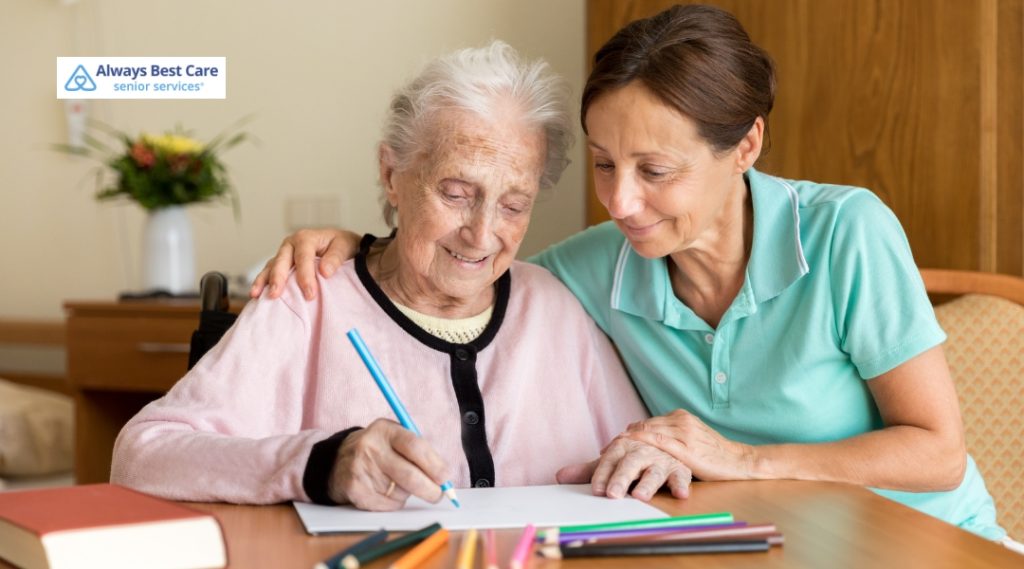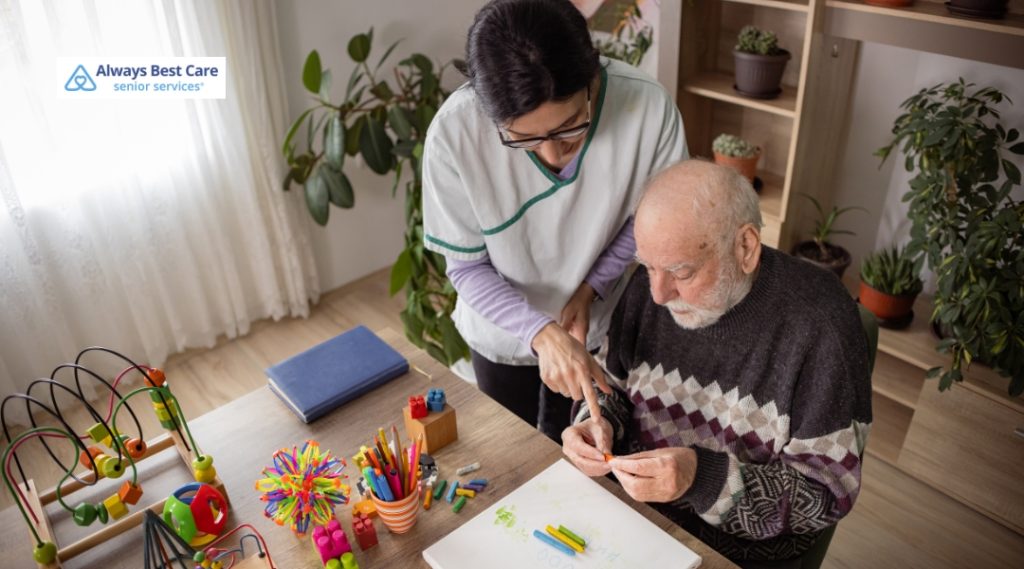Early Signs of Dementia You Shouldn’t Ignore in Shreveport, LA

Let’s face it; forgetting where you left your glasses happens to all of us.
But sometimes, memory lapses and changes in behavior are more than just “senior moments.”
Here in Shreveport, LA, families often ask us at Always Best Care how to tell the difference between normal aging and the early signs of dementia. Well, it’s not always clear-cut, but there are telltale clues that deserve attention.
What you will learn:
- The difference between normal aging memory changes and early signs of dementia.
- Seven key warning signs of dementia that should not be overlooked.
- When and why it’s important to seek professional help for cognitive concerns.
- How in-home care from Always Best Care of Shreveport supports seniors showing early dementia symptoms with compassion and practical assistance.
Table of Contents
What Counts as Normal Aging?
Growing older naturally brings some bumps on Memory Lane:
- Taking longer to recall names or dates.
- Occasionally forgetting appointments (but usually remembering them later).
- Still handling daily routines and decisions without trouble.
In short, minor forgetfulness isn’t a red flag; it’s just part of getting up there in years.

7 Early Signs of Dementia: Red Flags You Can’t Afford to Overlook
When these blips start disrupting day-to-day life or cause noticeable personality shifts—that’s when our radar goes up for dementia.
- Memory Loss That Disrupts Daily Life: Sure, missing an appointment is human. But if someone keeps forgetting important events or asks for the same info repeatedly? That goes beyond normal forgetfulness, especially when they rely on notes or reminders much more than before.
- Struggling With Familiar Tasks: A once-master chef suddenly can’t follow a favorite recipe or has trouble operating appliances they’ve used for ages? These challenges with concentration and following steps are real warning signs.
- Communication Trouble: Early dementia might trip people up mid-sentence; they may pause searching for words or call common things by the wrong name. Some even withdraw from conversation because following stories is tough.
- Lapses in Judgment: Odd choices show up out of nowhere, like dressing wrong for Louisiana heatwaves, giving away money over the phone, or neglecting personal hygiene. It’s not just quirky; poor decision-making could signal cognitive decline.
- Getting Lost… Even Close to Home: People who’ve lived here all their lives start missing familiar turns around town or lose track of what day it is entirely. A failing sense of direction can creep up quietly but spells trouble down the road.
- Mood Swings and Withdrawal: We see formerly social folks become anxious, depressed, irritable, or flat-out uninterested in favorite pastimes with friends and family members alike. Sometimes, they stop wanting visitors altogether.
- Misplacing Things—and Not Retracing Steps: Everyone loses keys now and then, but putting car keys inside the fridge? Or accusing others because items “keep disappearing”? This pattern often crops up with dementia-related confusion about space and belongings.
When Should We Seek Help?
If two or more warning signs stick around, even if they’re subtle, it might be time to check with a healthcare professional. An early diagnosis gives everyone room to plan ahead together: from care needs down the line to managing finances before things get tricky.
Getting answers sooner also connects families with resources tailored right here at home, from support groups to specialized care plans that ease everyone’s mind.

How Always Best Care of Shreveport Can Lend a Hand
Looking after someone showing early signs isn’t easy, and we get that better than anyone else! Our caregivers at Always Best Care know what subtle symptoms look like because we see them every day across northwest Louisiana homes:
- Assisting safely so folks stay independent as long as possible.
- Keeping spirits high through genuine companionship.
- Encouraging mental exercises customized by familiarity, not frustration!
- Providing gentle reminders so stress stays low (for both seniors and their families).
Above all else? We help keep peace-of-mind front and center so no one feels alone through this journey.
FAQ
Q: How do I know what’s normal aging versus possible dementia?
A: Normal aging doesn’t interrupt daily independence—a person still manages bills or social plans themselves, even if slower sometimes.
Q: Is depression common during the early stages?
A: Absolutely! Many experience mood swings, including sadness, before major memory loss sets in.
Q: What should I do if I notice several symptoms happening together?
A: Don’t wait; schedule an assessment with your healthcare provider right away so you’re not guessing about next steps!
Q: Can you reverse dementia symptoms by catching them super early?
A: While some causes behind memory loss are treatable (like vitamin deficiencies), most dementia symptoms can be managed with prompt medical advice, making a world of difference down the line.

Schedule a Complimentary Consultation at Always Best Care of Shreveport!
If you’re concerned about memory changes in someone you care about, don’t wait to take action. Contact Always Best Care of Shreveport at (318) 424-5300 for a care consultation. Our experienced team can help you understand your options and create a care plan tailored to your loved one’s unique needs. Early support matters—and you don’t have to navigate it alone.





